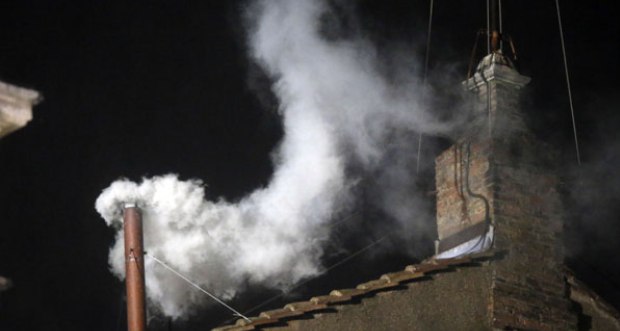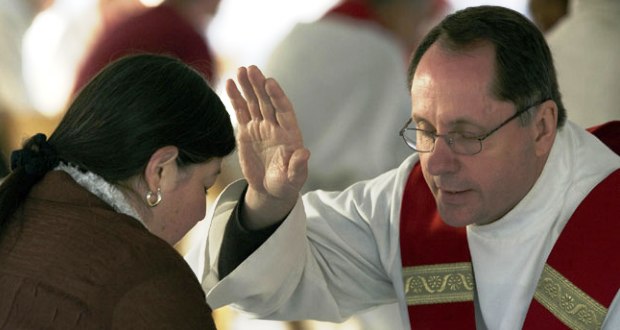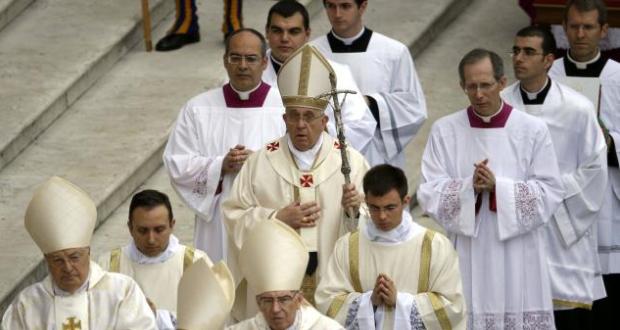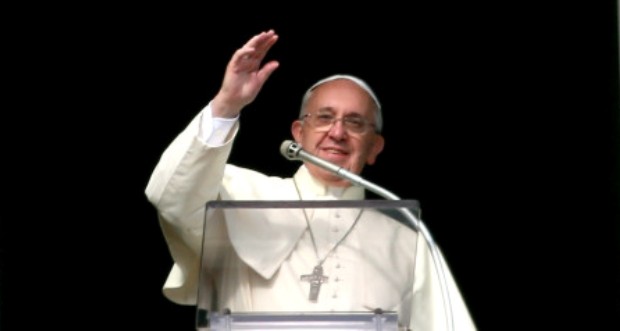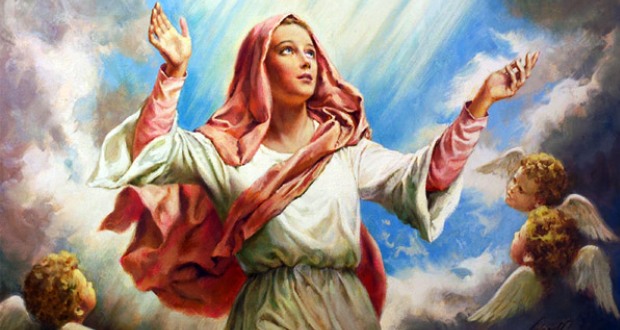The Resurrection – Jesus Answers The Sadducees

Below is a English translation of the address given by His Holiness, Pope Francis before the praying of the mid-day Angelus with those gathered in St. Peter’s Square yesterday – Sunday 10 November 2013.
Dear brothers and sisters, hello!
This Sunday’s Gospel presents us with Jesus having to deal with the Sadducees, who rejected the resurrection. And it is specifically on this topic that they pose a question to Jesus to offer him difficulty and ridicule faith in the resurrection of the dead. They propose a hypothetical circumstance:- “A woman had seven husbands, who died one after the other,” and they ask Jesus: “Whose wife will she be after her death?” Jesus, always meek and patient, first of all responds that life after death does not have the same parameters as life on earth. Everlasting life is another life, in another measurement, where, to name a few things, there will be no marriage, which is associateded with our presence in this world. The resurrected, Jesus states, will be like angels, and they will live in a different state that we can not experience or envision now. And this is exactly how Jesus describes things.
However then Jesus, so to talk, launches a counterattack. And he does this by pointing out Sacred Scripture with a simplicity and an originality that fills us with admiration for our Master, the only Master! Jesus goes to the proof of the resurrection in the episode about Moses and the burning bush (Exodus 3:1 -6), where God discloses himself as the God of Abraham, Isaac and Jacob. The name of God is linked to the men and women to which he binds himself, and this link is stronger than death. And we can likewise state that God’s relationship with us, with each one of us: He is our God! He is the God of every one of us! It is as if he bore our name. It pleases him to state it, and this is the covenant. This is why Jesus says: “God is not the God of the dead but of the living, since everybody lives for him” (Luke 20:38). And this is the decisive link, the essential covenant, the covenant with Jesus: he himself is the Covenant, he himself is the Life and the Resurrection because, with his crucified love, he got over death. In Jesus, God offers us everlasting life, he offers it to everyone, and thanks to him everybody has the hope of a life still more real than this one. The life that God prepares for us is not merely a decoration of this present life: it transcends our imagination, since God constantly awakens wonder in us with his love and with his mercy.
So, what will occur is exactly the contrary of what the Sadducees expected. It is not this life that illuminates eternity, the other life, the one that awaits us, but eternity – that life – that illuminates and gives hope to the earthly life of each one of us! If we look at things just with human eyes, we are brought to believe that man’s journey runs from life to death. This is evident! However this is just the case if we look at things with human eyes. Jesus stands this perspective on its head and says that our pilgrimage runs from death to life: to fullness of life! We are on a journey, on trip towards the fullness of life, and that life is exactly what enlightens us on our journey! So, death is behind us, at our backs, not in front of us.
Before us there is the God of the living, the God of the covenant, the God who bears my name, our name, as he stated: “I am the God of Abraham, Isaac and Jacob,” also the God with my name, with your name, with your name …, with our name. God of the living! … Before us is the final defeat of sin and death, the beginning of a new time of happiness and of light without end. But already on this earth, in prayer, in the Sacraments, in fraternity, we satisfy Jesus and his love, and in this way we can have a foretaste of the risen life. Our experience of his love and his fidelity lights a fire in our heart and increases our faith in the resurrection. In fact, if God is faithful and loves, it can not be for a limited time: fidelity is eternal, it can not change. God’s love is everlasting, it can not alter! It is not for a restricted time: it is forever! And to go ahead! He is faithful forever and he awaits us, each of us, he accompanies each of us with this eternal fidelity.


